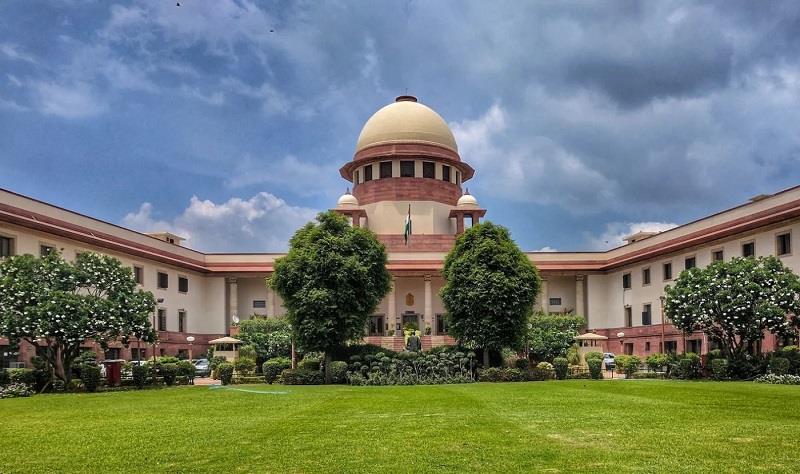
SC: 7-Year Experienced Advocates Eligible For ADJ Under Bar Quota
File photo of Supreme Court of India.
New Delhi- The Supreme Court, in a significant verdict on Thursday, held that judicial officers who have completed seven years of practice as advocates prior to joining the bench can be considered for appointment as district judges against vacancies reserved for members of the Bar.
A five-judge Constitution bench comprising Chief Justice B R Gavai and justices M M Sundresh, Aravind Kumar, S C Sharma and K Vinod Chandran delivered two separate and concurring verdicts on over 30 petitions.
Granting major relief to judicial officers, the verdict said,“The experience the judicial officers gain while working as judges is much greater than the one, a person gains while working as an advocate. Apart from that, before commencing their work as judicial officers, the judges are also required to undergo rigorous training of at least one year.”
The verdict, which redefined the eligibility criteria for appointment of district judges, also held that the eligibility for appointment as a district judge or additional district judge is to be seen at the time of application.
“Judicial officers who have already completed seven years in Bar before they were recruited in the subordinate judicial service would be entitled for being appointed as a District Judge/Additional District Judge (DJ/ADJ) in the selection process for the post of DJs in the direct recruitment process,” said the CJI, who authored a 119-page judgement for himself and justices Aravind Kumar, S C Sharma and K Vinod Chandran.
“Though there is no eligibility prescribed under Article 233(2) for a person already in judicial service of the Union or of the State for being appointed as District Judge, in order to provide a level playing field, we direct that a candidate applying as an in-service candidate should have seven years' combined experience as a Judicial Officer and an advocate,” it held.
Justice Sundresh delivered a concurring opinion, endorsing the CJI's reasoning while elaborating on the principle of constitutional silence.
He observed that the framers of the Constitution deliberately left certain areas open-ended, allowing the judiciary to interpret evolving needs.
“There is no bar on persons in judicial service from competing for vacancies intended to be filled through direct recruitment. Any interpretation to the contrary would amount to creating a reservation in favour of advocates, which the Constitution does not contemplate,” Justice Sundresh held.
The CJI, in his verdict, held a person, who is in judicial service and has a combined experience of 7 years or more as an advocate or a judge, would be eligible for being appointed as a DJ under Bar quota under Article 233.

Legal Disclaimer:
MENAFN provides the
information “as is” without warranty of any kind. We do not accept
any responsibility or liability for the accuracy, content, images,
videos, licenses, completeness, legality, or reliability of the information
contained in this article. If you have any complaints or copyright
issues related to this article, kindly contact the provider above.


















Comments
No comment